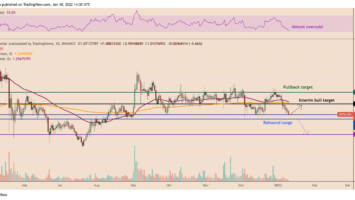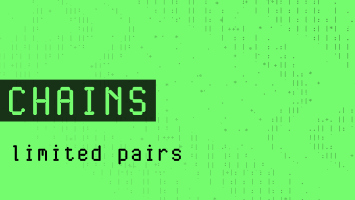
At the end of the trading day on Monday, Wall Street was roiled once again as major stocks plunged during the day’s trading sessions. Most news outlets indicate the Russia-Ukraine war is causing the bleak outlook and reports show strained financial conditions worldwide are currently the tightest since 2020. Meanwhile, bond markets during Monday’s trading sessions indicate increased inflationary pressures may be on the horizon.
Global Investors Grow Concerned About Strained Financial Conditions
Equities traders did not have a pleasant day during Monday’s trading sessions as the S&P 500, Nasdaq, NYSE, the Dow, and many other stocks plunged in value. The price shocks and economic fallout is no longer being blamed on Covid-19, as fingers are pointing at the ongoing Russia-Ukraine conflict in Europe.

While reports say the military warfare has been brutal, economic sanctions are also taking a toll on the Russian economy. Moreover, economists have noted the sanctions are affecting other economies worldwide and this weekend, the International Monetary Fund (IMF) warned the “economic consequences are already very serious.”
The massive rise in food and energy prices have caused an enormous tightening of financial conditions, along with the liquidity issues of de-platforming Russia. The 2/10’s swaps curve is at 15bps and will hit zero soon, showing how tight conditions really are. 1/
— Raoul Pal (@RaoulGMI) March 4, 2022
The IMF discussed how sanctions and warfare have added “extraordinary uncertainty” and the situation could cause inflationary pressures, supply chain disruptions, and price Shocks. Furthermore, on Monday, Reuters reported that the current financial conditions worldwide are the “tightest in two years.”
The last major occurrence of a crisis situation affecting markets globally was on March 11, 2020, otherwise known as ‘Black Thursday.’ DZ Bank strategist Rene Albrecht explains if inflation rises and “if the central banks take their mandates seriously, you will see a further (tightening) in financial conditions.”
Bond Market Volatility
On March 6, Bitcoin.com News reported on the U.S. Treasury yield curve and how it was showing signs of a recession. Bond markets continue to reflect a harsh economy and added inflation of close to “2.79% over the next decade,” according to data from Monday morning’s trading sessions.
Irrational price action in financial markets is always disconcerting to watch. We are seeing a lot of this right now in a wide range of markets… commodities and bonds in particular
— Stephen Koukoulas (@TheKouk) March 7, 2022
Bond markets have experienced discontentment and extreme volatility during the last few weeks. On March 2, Ikigai Asset Management’s chief investment officer Travis Kling remarked the “last time bond market volatility was this high, the Fed cut rates 100 bps and did 3 trilly of QE in six weeks.”
The secular bull market that began in 2009 was stoked by an aging population, slower labor-force growth and a corresponding secular decline in interest rates since the early 1980s. Investors ran out of yield in the bond market, extended their search for income to stocks. pic.twitter.com/7gBrlqK47m
— Jurrien Timmer (@TimmerFidelity) March 7, 2022
In a March 7 note sent to Barron’s Alexandra Scaggs, Matthew Luzzetti and Deutsche Bank economists discussed the fear of long-lasting inflation and the irritability it may bring to the U.S. central bank.
“In light of recent energy price moves in response to events in Ukraine…long-run inflation expectations could be at risk of moving to an uncomfortable level for Fed officials, especially given the backdrop of these other forces pointing to persistently elevated inflation,” the Deutsche Bank economists said in a statement.
While stocks have been significantly down in value in recent times, the crypto economy has also felt the wrath of an uncertain and shaky economy. The crypto economy has shed more value since yesterday, dipping down to $1.78 trillion, losing 2.8% against the U.S. dollar in 24 hours. Gold, on the other hand, tapped $2K per ounce on Monday and is currently trading for $1,997 per ounce. Moreover, a barrel of crude oil jumped to $120.33 per barrel high on Monday as well.
What do you think about the current events concerning the global economy? Do you think investors should worry about tightened financial conditions worldwide? Let us know what you think about this subject in the comments section below.
Image Credits: Shutterstock, Pixabay, Wiki Commons
Disclaimer: This article is for informational purposes only. It is not a direct offer or solicitation of an offer to buy or sell, or a recommendation or endorsement of any products, services, or companies. Bitcoin.com does not provide investment, tax, legal, or accounting advice. Neither the company nor the author is responsible, directly or indirectly, for any damage or loss caused or alleged to be caused by or in connection with the use of or reliance on any content, goods or services mentioned in this article.






















Comments (No)